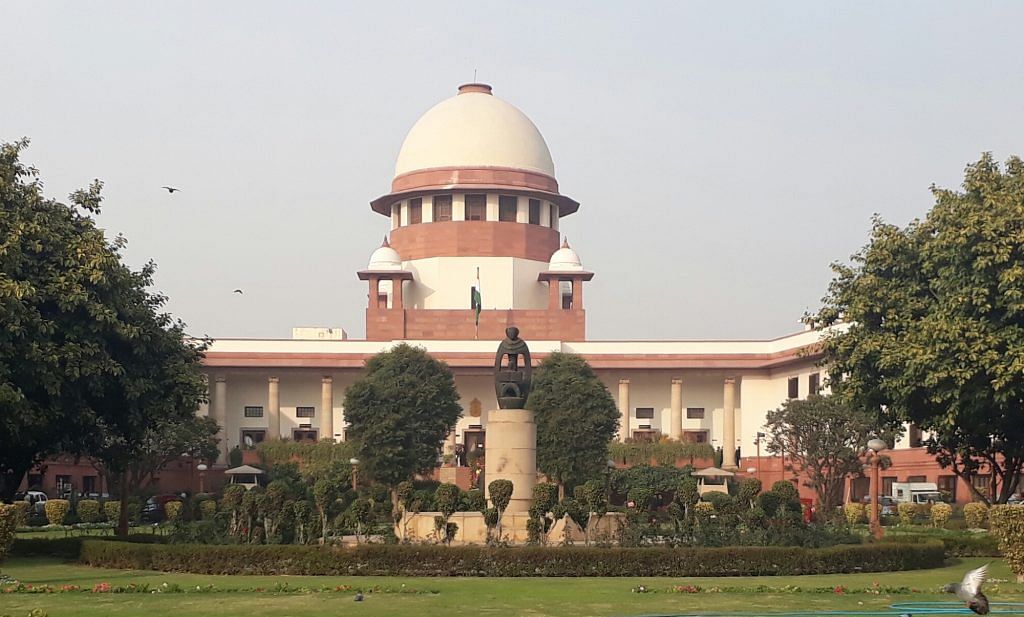Coming months will also see the last leg of CJI Dipak Misra’s career, replete with controversies, as he retires on 2 October.
New Delhi: The update of the National Register of Citizens for Assam, the Centre-Delhi government power tussle, Article 370 and the Babri Masjid hearing are among the key cases that the Supreme Court will take up when it reopens after the summer vacation Monday.
The coming months will also see the last leg of Chief Justice of India Dipak Misra’s career, replete with controversies, as he retires on 2 October.
Apart from CJI Misra, three other judges — Justice A.K Goel (6 July), Kurian Joseph (29 November) and Madan Lokur (30 December) will also retire this year.
A quick glance at the cases that will be heard by the top court in the coming days:
The NRC hearing: A bench comprising justices Ranjan Gogoi and Rohinton Nariman will hear the case pertaining to the much-anticipated final draft of the updated National Register of Citizens (NRC) for Assam, which missed its 30 June release date. The Centre sought for more time on the grounds that floods in Assam hampered the work there. The Supreme Court-monitored update of the NRC is aimed at weeding out illegal immigrants from the voters’ list.
Articles 370: Cases pertaining to Articles 370 and 35A of the Constitution are also likely to be heard in the coming weeks. The apex court had in April observed that Article 370, which grants special status to Jammu and Kashmir, was essentially a permanent statute, not a temporary one. However, the matter is still pending, since the Centre has yet to take a stand on this issue. In May, the top court deferred all pleas on the issue of article 35A that grants residents of the Valley special privileges, after the Centre and J&K sought for additional time.
Centre-Delhi power tussle: The power tussle between the Delhi government and lieutenant governor of the city will also be decided by the top court once it reopens. In December 2017, a five-judge constitution bench reserved its order on a plea filed by the Aam Aadmi Party-led government challenging a Delhi high court order, which ruled that essentially the LG was the boss of Delhi.
Babri Masjid case: A special bench led by CJI Misra will hear this case, whose verdict will have huge political implications for 2019 elections. The BJP has already suggested that the move by the Congress to initiate impeachment proceedings against CJI Misra was merely a political ploy to scuttle the Ayodhya matter.
Manipur fake encounters: Justices Madan Lokur and U.U. Lalit will be hearing the case. Last July, the top court had directed the CBI to constitute a special investigation team (SIT) to look into the encounter killings in Manipur, allegedly at the behest of the local police and the Army. The plea submitted that around 1,528 encounters took place in the past few decades.
Aadhaar case: CJI Misra will have to pronounce the verdict in the case where the constitutional validity of Aadhaar has been challenged. As of now, there are many schemes and services offered by the state where Aadhaar is a must.
In addition to these, the apex court will hear cases such the Rohingya refugee issue and Kathua rape case in Himachal Pradesh in the coming days.
Justices Lokur and Lalit will conduct an in-camera hearing of the feasibility of prohibiting the circulation of videos on child pornography and sexual assault online.
The court will also hear the environmental issue related to the ban of pet coke and furnace oil besides a green matter pertaining to the Vaishno Devi shrine in Jammu.
